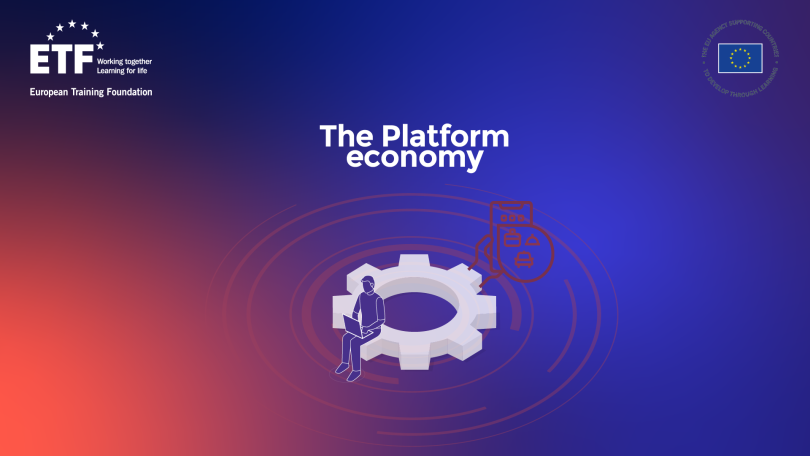
Future of Work: the platform economy
What is the platform economy?
Labour on demand is becoming widespread in the so-called ‘platform’, ‘collaborative’ or ‘gig’ economy’. It has different names, but generally it enables hiring services via internet-based platforms. Digital developments are bringing an increased labour flexibility, replacing ‘jobs’ by ‘tasks’ and influencing employment relationships by reshaping them or creating new ones. It has a trans-border nature, with offer and demand of labour meeting online and implies a genuine globalisation of work. The trend is also enhanced by overall low market stability and new economic models, which use internet and arise in parallel to traditional sectors, in particular services.
What are the benefits?
The platform economy can benefit transition and developing countries by creating jobs within underperforming markets especially for people facing barriers to employment and or subject to exclusion such as young people, women, persons with disabilities and people living in remote areas. It can offer an alternative to persons who might otherwise migrate offsetting a countries’ ‘brain drain’. The Covid-19 pandemic has reinforced remote work as it suffered less disruption compared to conventional physical businesses.
Are there risks for workers?
ETF studies reveal serious challenges from the increasing exposure of workers to global competition without employment protection. The ETF’s 2020 fiche on education and training and employment developments in Serbia notes that its digital workforce makes it one of the top countries globally in the platform economy rankings with 19% of its young people working mostly in technology, graphics, internet design and media. Nevertheless, a legal framework is needed to recognise this form of employment and protect the well-being and rights of workers and harness their skills for national economy. An ETF study on new forms of employment and platform work in the six Eastern Partnership countries (forthcoming) noted similar trends in Ukraine, Armenia and Belarus. New mechanisms are needed to ensure that international and national rules protect workers, at the same time as maintaining the flexibility and competitiveness of the platforms and employment opportunities for workers. The studies have also shown that employment inequalities in physical settings, such as the gender pay gap, still exist and need to be addressed within the platform economy.
What is the European Commission doing?
The Commission Work Programme 2021 announced a legislative initiative on improving the working conditions of platform workers by the end of 2021. This initiative will support the implementation of principles contained in the European Pillar of Social Rights.
What is the ETF doing?
The ETF’s activities and research, which are informed by EU policy and practices, focus on the opportunities and challenges for labour and skills driven by the online and platform work developments. As featured in the report on Serbia we focus on the implications for the regulatory and institutional setting for quality job creation, inclusiveness, skills formation and utilisation, and economic growth.
In 2020, the ETF looked at the changing patterns of work triggered by digitalisation in the six Eastern Partnership (EaP) countries: Armenia, Azerbaijan, Belarus, Georgia, Moldova, and Ukraine which showed high diversity and incidence within. An expert seminar was held in January 2021 in which the findings were discussed with national experts including establishing country-specific profiles and identifying the tailored needs of each country to benefit from the new opportunities.
The ETF is also fostering partnerships for international cooperation with multiple partners: international organisations, national authorities, research community, digital platforms, social partners, civil society, and many others. We provide comparable evidence across countries for the benefit of societies, institutions and individuals.
Where can I find more information?
More information is available on the on the ETF virtual platform OpenSpace
The future of work: new forms of employment and platform work | Open Space (europa.eu)
Platform economy & platform work. Diving into complexity | Open Space (europa.eu)
Did you like this article? If you would like to be notified when new content like this is published, subscribe to receive our email alerts.